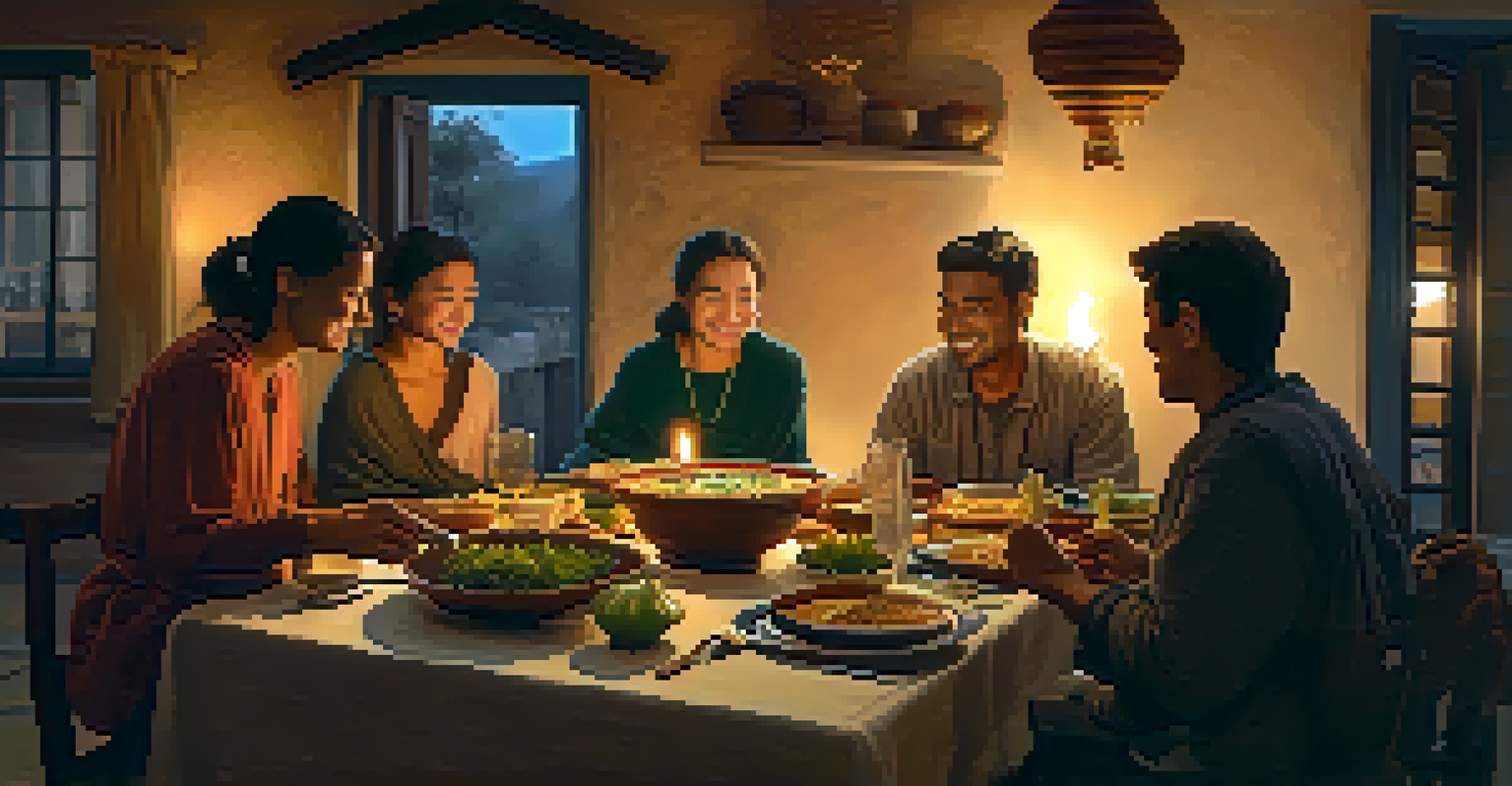Exploring the Heart of Local Cultures Through Immersion Trips

What Are Immersion Trips and Their Purpose?
Immersion trips are unique travel experiences designed to deeply engage participants with local cultures. Unlike conventional tourism, these trips prioritize authentic interactions over surface-level sightseeing. The goal is to foster a genuine understanding of a community's traditions, lifestyles, and values.
Travel is fatal to prejudice, bigotry, and narrow-mindedness.
For example, instead of merely visiting a landmark, travelers might stay with a local family, participate in their daily activities, or learn traditional crafts. This hands-on approach allows for a richer appreciation of the culture. By stepping outside their comfort zones, participants often find themselves transformed by the experience.
Ultimately, immersion trips aim to break down cultural barriers and promote mutual understanding. They encourage travelers to view the world through a different lens, fostering a sense of connection to the places and people they encounter.
The Benefits of Immersion Travel for Participants
One of the most significant benefits of immersion travel is personal growth. Travelers often return home with enhanced self-awareness and a broadened perspective. Engaging with diverse cultures challenges preconceived notions and encourages empathy, helping individuals to become more open-minded.

Moreover, these trips can spark lasting friendships across the globe. When you share experiences with locals, you create bonds that transcend language and cultural differences. This sense of community can lead to lifelong connections and a deeper understanding of the world.
Immersion Trips Foster Cultural Growth
These travel experiences encourage deep engagement with local cultures, promoting understanding and empathy.
Additionally, immersion travel can also boost language skills. Being in a local environment encourages participants to practice their conversational abilities, leading to improved fluency. This practical application of language learning adds an exciting layer to the travel experience.
How to Choose the Right Immersion Trip
Selecting the perfect immersion trip starts with identifying your interests and goals. Consider what aspects of a culture intrigue you the most—food, art, history, or community traditions. This will guide you in finding a trip that aligns with your passions.
The world is a book, and those who do not travel read only one page.
It's also essential to research the organizations offering these trips. Look for providers that prioritize ethical practices and community involvement. Reading reviews and testimonials can provide valuable insights into the experiences of past travelers.
Lastly, consider the duration and location of the trip. Some may prefer a short, intense experience, while others might seek a longer stay to delve deeper into local life. Finding a balance that suits your schedule and curiosity will enhance your immersion experience.
Engaging with Local Communities: Best Practices
When engaging with local communities, approach interactions with respect and openness. Familiarize yourself with local customs and traditions to ensure you’re not inadvertently causing offense. Simple gestures, like learning a few phrases in the local language, can go a long way in building rapport.
Additionally, participate actively in community activities. Whether it’s cooking a traditional meal or joining a local festival, these experiences allow for deeper connections with residents. The more you immerse yourself, the richer your understanding will be.
Food Connects Travelers and Locals
Participating in local culinary traditions enhances cultural immersion and creates memorable connections.
Don’t forget the importance of listening. Often, locals can provide insights and stories that textbooks cannot. Engaging in conversations allows for a two-way exchange of knowledge, enriching both your experience and that of the locals.
The Role of Food in Cultural Immersion
Food serves as a powerful gateway into understanding local cultures. By tasting traditional dishes, travelers can connect with a region’s history and social practices. Each meal tells a story, reflecting the land’s resources, climate, and cultural influences.
Participating in cooking classes or food tours can enhance this experience. Learning to prepare local delicacies alongside residents provides an intimate glimpse into their culinary traditions. It’s a delicious way to bond and share in the community’s heritage.
Moreover, food often acts as a catalyst for social interactions. Sharing a meal can break down barriers and create a sense of belonging. Whether dining at a family table or enjoying street food with locals, these moments are often the most memorable.
Sustainable Practices in Immersion Travel
Sustainable practices are essential in immersion travel to ensure that local communities benefit from tourism. Travelers should prioritize eco-friendly accommodations and support local businesses, helping to preserve the culture and environment. This approach fosters economic growth while minimizing negative impacts.
Additionally, being mindful of resource consumption is crucial. Simple actions, like reducing plastic use and respecting wildlife, contribute to sustainability. Travelers should aim to leave a positive footprint, ensuring that the beauty of local cultures is preserved for future generations.
Sustainability Enhances Travel Impact
Adopting sustainable practices ensures that immersion travel benefits local communities and preserves their cultures.
Engaging in volunteer opportunities during immersion trips can also enhance sustainability. Contributing time and skills to local projects not only supports the community but also enriches the travel experience. This reciprocal relationship creates a win-win situation for all involved.
Reflecting on Your Immersion Experience
After returning from an immersion trip, taking time to reflect on the experience is vital. Journaling about your journey can help solidify memories and insights gained during your travels. Reflecting not only enhances personal growth but also assists in processing the emotional aspects of the journey.
Sharing your experiences with friends, family, or even on social media can amplify the impact of your immersion. By bringing attention to the cultures you encountered, you foster awareness and encourage others to explore similar journeys. This storytelling can inspire a ripple effect of cultural appreciation.

Lastly, consider how the lessons learned during your trip can influence your daily life. Whether it’s adopting new practices or advocating for cultural understanding, integrating these experiences can lead to lasting change, both personally and within your community.